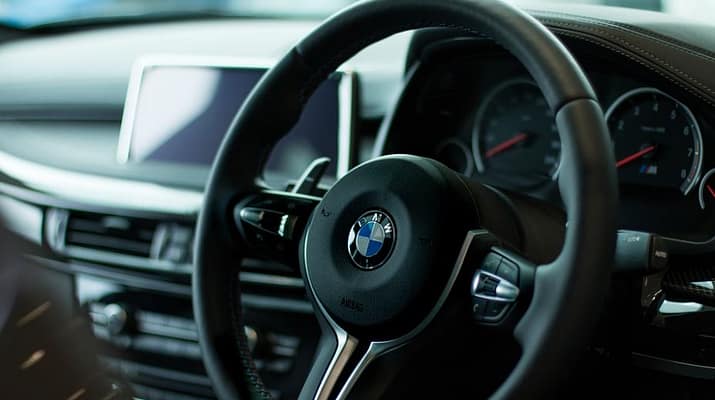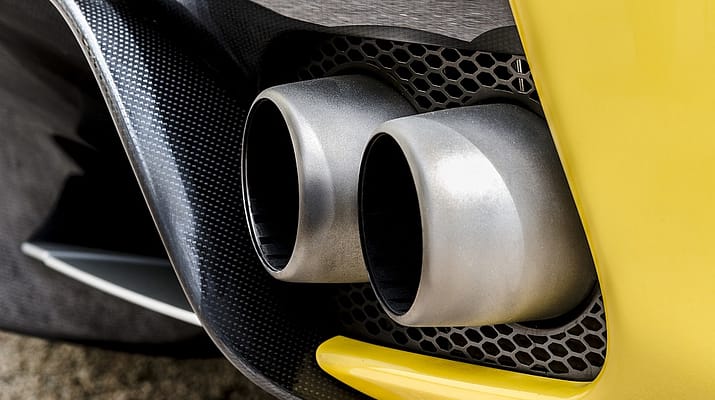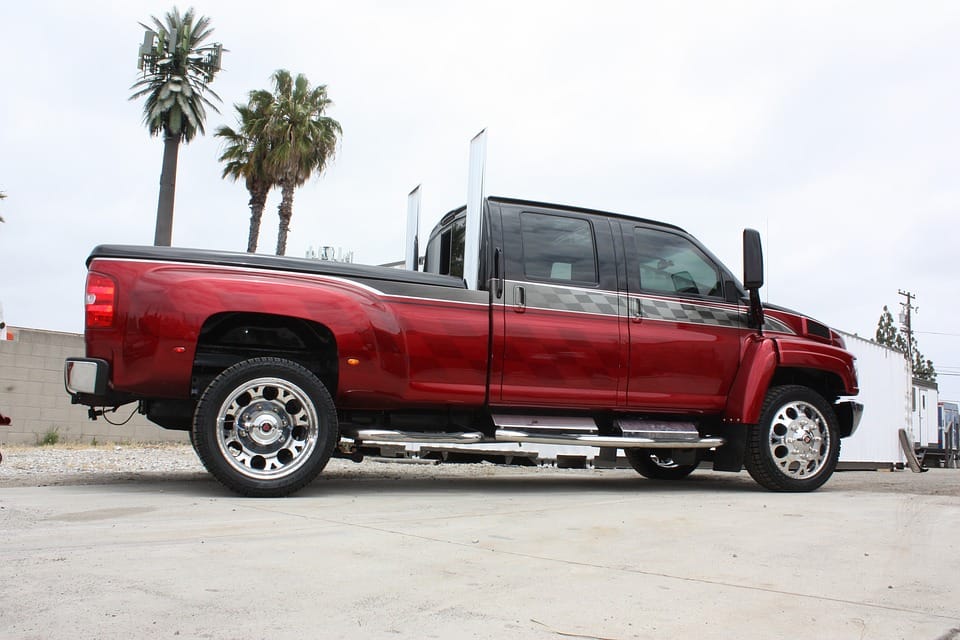Your vehicle is more than just a way to get around—it’s your reliable partner on the road. However, like any valuable relationship, it requires proper care and maintenance. One of the most serious problems you might encounter as a car owner is overheating. It can lead to expensive repairs and unwanted downtime. Fortunately, with some proactive maintenance, you can keep your engine cool and running smoothly. Let’s dive into essential tips that will help you prevent overheating and ensure your vehicle remains in tip-top shape for every journey ahead.
Regularly Check and Change Coolant
Coolant is the lifeblood of your vehicle’s cooling system. It helps regulate engine temperature, preventing overheating and potential damage. Regular checks are crucial to ensure it’s at the proper level. Start by inspecting the coolant reservoir periodically. If you notice low levels, top it off with a mix of water and antifreeze as specified in your owner’s manual. Changing the coolant is equally important. Over time, contaminants can build up, reducing its effectiveness.

Inspect the Radiator
Your radiator plays a crucial role in keeping your engine cool. Regular inspection can help catch issues before they escalate. Start by checking for any signs of leaks around the radiator. Look for puddles underneath your vehicle or wet spots on the radiator itself. A leaky radiator can lead to serious overheating problems. Next, examine the condition of the fins and core. Ensure no damage could hinder airflow. Clean away dirt and debris that may obstruct cooling efficiency.
Monitor Hoses and Belts
Hoses and belts play a critical role in your vehicle’s cooling system. They transport coolant to and from the engine, helping to regulate temperature. Regular inspections can save you headaches down the road. Look for cracks, fraying, or any signs of wear on both hoses and belts. A small issue can turn into a major problem if ignored. Pay special attention to the clamps that hold hoses in place. Loose or corroded clamps can lead to leaks, causing overheating issues.
Avoid Overloading Your Vehicle
Overloading your vehicle can lead to serious issues, particularly when it comes to overheating. Every car has a weight limit, and exceeding that can strain the engine and cooling system. When you pack too much into your trunk or tow heavy loads, your vehicle works harder than necessary. This added stress generates more heat, making it easier for the engine to overheat. Consider what you’re carrying. If you frequently transport large items or multiple passengers, ensure you’re within safe limits. A good rule of thumb is to keep an eye on both cargo weight and passenger count.

Pay Attention to Warning Signs
Your vehicle often communicates its needs. It’s crucial to listen closely to these signals. If the temperature gauge climbs into the red zone, don’t ignore it. This is a clear indication that your engine might be overheating. Strange noises can also signal trouble. A hissing sound could mean coolant is escaping; while grinding or squeaking may indicate issues with belts or other components. Watch for warning lights on your dashboard too. An illuminated check engine light can point toward various problems, including cooling system failures. Taking care of your vehicle is essential for its longevity and performance. By following these simple yet effective tips, you can significantly reduce the risk of overheating. Regularly checking and changing your coolant ensures that your engine stays at an optimal temperature. Inspecting the radiator allows you to catch any potential issues before they escalate. By implementing these practices into your routine maintenance schedule, you’ll help ensure that your vehicle runs smoothly and efficiently year-round. Protecting your car from overheating not only saves you money on repairs but also enhances safety during drives. Make caring for your vehicle a priority, and enjoy peace of mind knowing you’re doing what’s best for it.…



 Regular oil changes are a vital aspect of engine maintenance. The oil lubricates the moving parts within the engine, reducing friction and preventing wear and tear. Over time, oil breaks down and becomes contaminated with dirt and debris, making it less effective in protecting your engine. Following the manufacturer’s recommended oil change schedule ensures that your engine stays properly lubricated. When changing the oil, remember also to replace the oil filter. The filter helps to trap contaminants that could otherwise circulate through the engine and cause damage.
Regular oil changes are a vital aspect of engine maintenance. The oil lubricates the moving parts within the engine, reducing friction and preventing wear and tear. Over time, oil breaks down and becomes contaminated with dirt and debris, making it less effective in protecting your engine. Following the manufacturer’s recommended oil change schedule ensures that your engine stays properly lubricated. When changing the oil, remember also to replace the oil filter. The filter helps to trap contaminants that could otherwise circulate through the engine and cause damage. Your car’s engine needs clean air to perform at its best. Over time, the air filters in your vehicle can get clogged with dirt, dust, and debris. This can restrict airflow to the engine, leading to decreased performance and fuel efficiency. Replacing air filters regularly is a simple yet crucial maintenance task. It not only helps improve engine performance but also ensures that harmful particles don’t make their way into the engine components. Most manufacturers recommend replacing air filters every 12,000 to 15,000 miles or as specified in your vehicle’s manual.
Your car’s engine needs clean air to perform at its best. Over time, the air filters in your vehicle can get clogged with dirt, dust, and debris. This can restrict airflow to the engine, leading to decreased performance and fuel efficiency. Replacing air filters regularly is a simple yet crucial maintenance task. It not only helps improve engine performance but also ensures that harmful particles don’t make their way into the engine components. Most manufacturers recommend replacing air filters every 12,000 to 15,000 miles or as specified in your vehicle’s manual. Your car’s cooling system is crucial for keeping your engine running smoothly and preventing overheating. To maintain this system, regularly check the coolant levels and top them up as needed. It’s also essential to inspect the radiator, hoses, and water pump for any signs of leaks or damage. Another important aspect of maintaining your cooling system is flushing out the old coolant and replacing it with fresh fluid according to your manufacturer’s guidelines. This helps prevent corrosion and ensures proper heat transfer within the engine. Additionally, consider having a professional mechanic thoroughly inspect the entire cooling system at least once a year to catch any potential issues.
Your car’s cooling system is crucial for keeping your engine running smoothly and preventing overheating. To maintain this system, regularly check the coolant levels and top them up as needed. It’s also essential to inspect the radiator, hoses, and water pump for any signs of leaks or damage. Another important aspect of maintaining your cooling system is flushing out the old coolant and replacing it with fresh fluid according to your manufacturer’s guidelines. This helps prevent corrosion and ensures proper heat transfer within the engine. Additionally, consider having a professional mechanic thoroughly inspect the entire cooling system at least once a year to catch any potential issues.

 The BMW X7 is the perfect combination of luxury, style, and versatility for business trips. It has enough room to accommodate five passengers comfortably, while its powerful engine provides plenty of power to get you there on time. The interior also features plenty of high-tech features like a 12.3-inch touchscreen with Apple CarPlay, Android Auto, and instant access to your contacts from the console. The exterior design also stands out with its sleek lines, large wheels, and signature BMW grille. When it comes to luxury SUVs, this is one that can’t be beaten.
The BMW X7 is the perfect combination of luxury, style, and versatility for business trips. It has enough room to accommodate five passengers comfortably, while its powerful engine provides plenty of power to get you there on time. The interior also features plenty of high-tech features like a 12.3-inch touchscreen with Apple CarPlay, Android Auto, and instant access to your contacts from the console. The exterior design also stands out with its sleek lines, large wheels, and signature BMW grille. When it comes to luxury SUVs, this is one that can’t be beaten.
 One of the most common car problems is brakes that are worn out or have been damaged in some way. When your brakes become worn, they can start to squeak, feel spongy, or fail altogether. It’s essential to have your brakes regularly inspected so you can catch any issues before they become dangerous. If the brakes do fail while driving, it’s essential to remain calm and slowly bring the vehicle to a stop. Avoid sudden braking or jerky motion, as this can cause an accident. There have been many cases where drivers have lost control of their vehicles due to brake failure. Which is why regular inspections are so necessary.
One of the most common car problems is brakes that are worn out or have been damaged in some way. When your brakes become worn, they can start to squeak, feel spongy, or fail altogether. It’s essential to have your brakes regularly inspected so you can catch any issues before they become dangerous. If the brakes do fail while driving, it’s essential to remain calm and slowly bring the vehicle to a stop. Avoid sudden braking or jerky motion, as this can cause an accident. There have been many cases where drivers have lost control of their vehicles due to brake failure. Which is why regular inspections are so necessary. The last common car problem is a faulty starter. This can cause the car to become completely unresponsive and unable to start. If you experience this issue, it’s essential to have a professional diagnose the problem and get it fixed as soon as possible. A faulty starter indicates that something else is wrong in the engine, so it’s important to find out what that is before attempting any repairs. Common causes of a faulty starter include worn-out components and battery failure. If you’re having trouble starting your car, it’s best to go to a professional and have them investigate the issue.
The last common car problem is a faulty starter. This can cause the car to become completely unresponsive and unable to start. If you experience this issue, it’s essential to have a professional diagnose the problem and get it fixed as soon as possible. A faulty starter indicates that something else is wrong in the engine, so it’s important to find out what that is before attempting any repairs. Common causes of a faulty starter include worn-out components and battery failure. If you’re having trouble starting your car, it’s best to go to a professional and have them investigate the issue.

 On the practical side of things, you should know the essential elements of renting a car – including what fees and surcharges are associated with your reservation. Some rental companies will also allow drivers to pick up their vehicle at one location but return it elsewhere for an additional fee. You can even find extra perks like GPS or child seats if needed (though usually not included).
On the practical side of things, you should know the essential elements of renting a car – including what fees and surcharges are associated with your reservation. Some rental companies will also allow drivers to pick up their vehicle at one location but return it elsewhere for an additional fee. You can even find extra perks like GPS or child seats if needed (though usually not included).
 think about your financial limitations and take into account that, in addition to buying
think about your financial limitations and take into account that, in addition to buying  innovations; However, first, check that your vehicle has the essentials in terms of safety. Then you can verify the technological characteristics it has. You should avoid these mistakes altogether to get a car that will grant you the best service.…
innovations; However, first, check that your vehicle has the essentials in terms of safety. Then you can verify the technological characteristics it has. You should avoid these mistakes altogether to get a car that will grant you the best service.…
 It is advisable to turn up your car before selling it if you want to get a good price. A lot of people are ready to purchase a classic car, but they are not ready to spend a lot of money on repairs. Therefore, you should carry out some maintenance before selling. Only do low-cost repairs. For instance, you can replace the oil filter and spark plug to ensure the engine runs smoothly.
It is advisable to turn up your car before selling it if you want to get a good price. A lot of people are ready to purchase a classic car, but they are not ready to spend a lot of money on repairs. Therefore, you should carry out some maintenance before selling. Only do low-cost repairs. For instance, you can replace the oil filter and spark plug to ensure the engine runs smoothly.



 Are you tired of the continuous car troubles? If yes, the right option or solution here is to sell it. When you decide to sell it, this means that you will forget your car troubles. When you try to repair your old car, this is the same as wasting your resources. On the same note, you should understand that older cars are likely to need repairs more often.
Are you tired of the continuous car troubles? If yes, the right option or solution here is to sell it. When you decide to sell it, this means that you will forget your car troubles. When you try to repair your old car, this is the same as wasting your resources. On the same note, you should understand that older cars are likely to need repairs more often.




 Nowadays, many things are changing, and as a result of that, you can now find many different types of lighting. But you need to stick to your likes and the entire design of your house. But for a beginner, you should understand that most of these lighting are categorized into two groups. You will either choose modern lights or traditional lights. If your home was constructed in a conventional style, then this means you will consider going for traditional lamps.
Nowadays, many things are changing, and as a result of that, you can now find many different types of lighting. But you need to stick to your likes and the entire design of your house. But for a beginner, you should understand that most of these lighting are categorized into two groups. You will either choose modern lights or traditional lights. If your home was constructed in a conventional style, then this means you will consider going for traditional lamps.
 A limo service means that you get a well-trained, professional, and experienced chauffeur. Thus, when traveling for business, you want to think about meetings, presentations, points to discuss, and other related things. A limo service offers you the desired peace of mind due to the safety it provides. You should not that limos are fully insured and are safe to travel. This is vital when the city you are traveling is new to you.
A limo service means that you get a well-trained, professional, and experienced chauffeur. Thus, when traveling for business, you want to think about meetings, presentations, points to discuss, and other related things. A limo service offers you the desired peace of mind due to the safety it provides. You should not that limos are fully insured and are safe to travel. This is vital when the city you are traveling is new to you. Getting to the airport late or missing your flight can be a nightmare for any particular traveler. However, whenever you use a reputable limo service to the airport, you are bound to arrive on time. In addition, this will take all your stress out of being late. Usually, a reliable airport limo service will track your flight and if there is a delay, they will adjust your timings of drop-off and pick up.…
Getting to the airport late or missing your flight can be a nightmare for any particular traveler. However, whenever you use a reputable limo service to the airport, you are bound to arrive on time. In addition, this will take all your stress out of being late. Usually, a reliable airport limo service will track your flight and if there is a delay, they will adjust your timings of drop-off and pick up.…

 Ideally, if your bike is less visible, the less likely it will be spotted by a thief. Thus, if you do not have a garage in your home, keep the bike covered. When the thief does not know what is underneath, it becomes difficult for him or her to determine how to steal it. For instance, if you put a BMW cover on your cheap bike, it will give the impression that your bike is hard to steal.
Ideally, if your bike is less visible, the less likely it will be spotted by a thief. Thus, if you do not have a garage in your home, keep the bike covered. When the thief does not know what is underneath, it becomes difficult for him or her to determine how to steal it. For instance, if you put a BMW cover on your cheap bike, it will give the impression that your bike is hard to steal. The good thing about alarms is that they attract the attention of other people. Thus, even if your bike has a false alarm, it will deter the thief. It is a good idea to look for a unique alarm sound that will get the attention of people.
The good thing about alarms is that they attract the attention of other people. Thus, even if your bike has a false alarm, it will deter the thief. It is a good idea to look for a unique alarm sound that will get the attention of people.


 One of the advantages of living in London is the great road network. Most of the streets and estates within London have good roads which facilitate easier transport in the city.
One of the advantages of living in London is the great road network. Most of the streets and estates within London have good roads which facilitate easier transport in the city. Last but not least, the rail network makes London stand out. It is easy to travel from one part of London to another and the other cities thanks to the rail network that covers almost all the parts of London. This is the favorite mode of transportation during the rush hours.
Last but not least, the rail network makes London stand out. It is easy to travel from one part of London to another and the other cities thanks to the rail network that covers almost all the parts of London. This is the favorite mode of transportation during the rush hours.
 If you want to get the best limousine for your event, the best option you are asked to consider is looking for a professional limousine company. How do you get to know the best limo company? First, you need to research around and know some of the best-rated companies in your region. Once you have identified the best companies in your area, the next step is to gather essential information concerning these companies in your neighborhood.
If you want to get the best limousine for your event, the best option you are asked to consider is looking for a professional limousine company. How do you get to know the best limo company? First, you need to research around and know some of the best-rated companies in your region. Once you have identified the best companies in your area, the next step is to gather essential information concerning these companies in your neighborhood. This is an essential factor you are asked to consider when looking for a limo company. It is your responsibility to ensure that you choose a company that is insured. Check if the limo company you are about to hire has proper certification. Also, never shall you forget to check if they have professionally trained staff.
This is an essential factor you are asked to consider when looking for a limo company. It is your responsibility to ensure that you choose a company that is insured. Check if the limo company you are about to hire has proper certification. Also, never shall you forget to check if they have professionally trained staff.



 Last but not least, no rider should ride without a helmet. It protects the head, the most important part of the body. Without the helmet, a minor accident can turn life-threatening. Almost all countries require riders to be on a helmet anytime they are riding. This is why motorcycles come with the helmet. Do not only wear the helmet to meet the state’s law but for your safety. If you happen to have a passenger, they too must put on their helmet.…
Last but not least, no rider should ride without a helmet. It protects the head, the most important part of the body. Without the helmet, a minor accident can turn life-threatening. Almost all countries require riders to be on a helmet anytime they are riding. This is why motorcycles come with the helmet. Do not only wear the helmet to meet the state’s law but for your safety. If you happen to have a passenger, they too must put on their helmet.…
 Different
Different  Note that you must return the van on time. You better return it early than arriving late. If you had agreed on pay by day basis, you would be forced to pay for the whole day if you returned the van hours later. If it were paying hourly rates, you would be required to pay for the entire hour if you arrived minutes late. Try to keep time by all means to avoid extra charges. If you have never rented a van, the details above will be of great help. More details on the same can be found online. Research is critical to making the right decisions.…
Note that you must return the van on time. You better return it early than arriving late. If you had agreed on pay by day basis, you would be forced to pay for the whole day if you returned the van hours later. If it were paying hourly rates, you would be required to pay for the entire hour if you arrived minutes late. Try to keep time by all means to avoid extra charges. If you have never rented a van, the details above will be of great help. More details on the same can be found online. Research is critical to making the right decisions.…